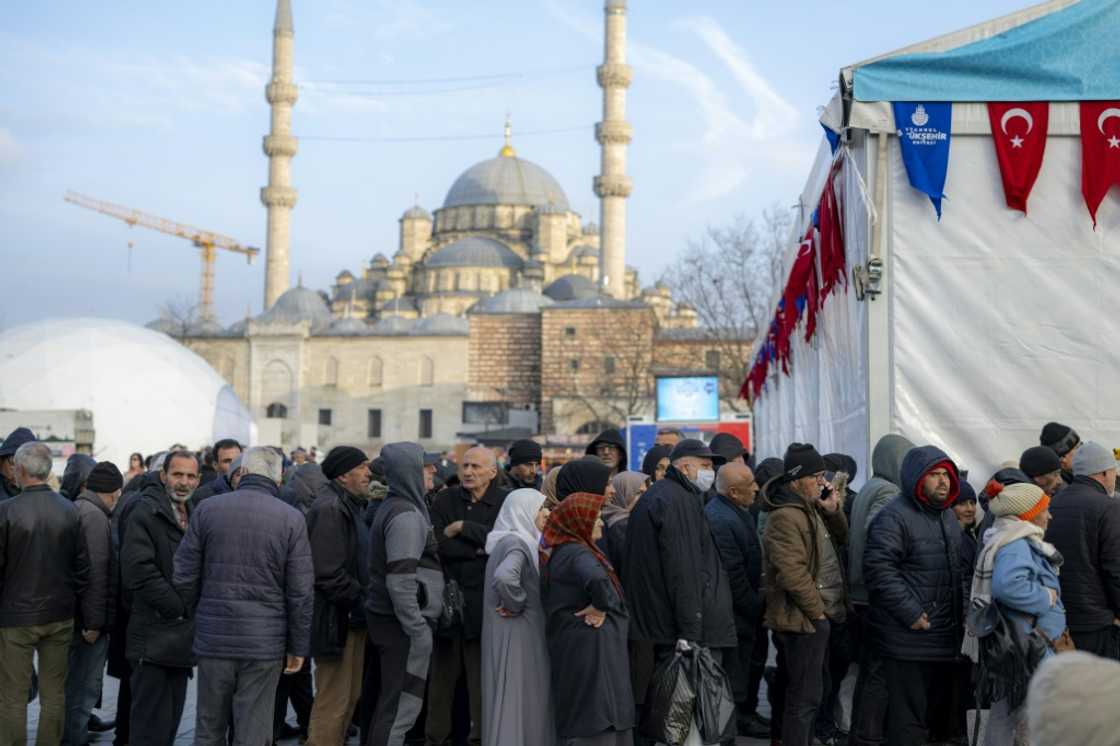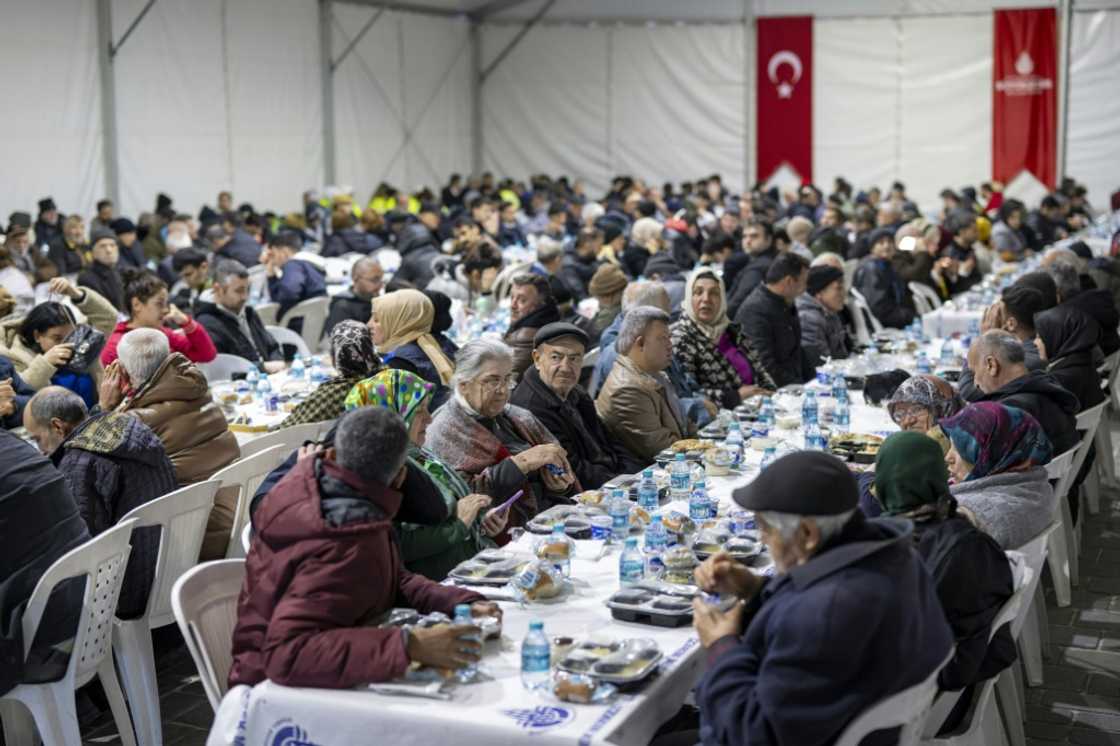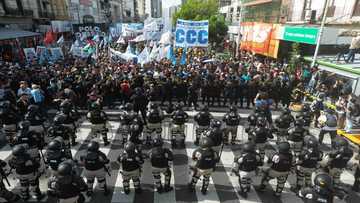High inflation in Turkey dampens Ramadan's high spirits

Source: AFP
As the sun sets over the Bosphorus, a long queue forms on a street in Istanbul as people wait for iftar -- the evening meal that breaks Ramadan's daily fast.
Due to Turkey's high inflation, many worshippers cannot afford to prepare iftar at home and so rely on the local authorities for the meal.
It is the first time 68-year-old pensioner Huseyin Ozcan has come to eat the meal supplied by the city -- tonight it is lentil soup, spinach and pasta. He said more people were coming for the free meals than in previous years.
"We are well served, but it's no substitute for the iftar at home," said Ozcan, who waited over an hour to be served.
"With my pension, I can't afford to prepare meals like I did during previous Ramadans. Food is too expensive."
According to official figures, Turkey's inflation rate soared to 67 percent in February.
PAY ATTENTION: Click “See First” under the “Following” tab to see YEN.com.gh News on your News Feed!
The spike particularly hit food products, for which inflation reached 72 percent overall in 2023.
Vicious cycle
A group of independent economists from Turkey's Inflation Research Group (ENAG) estimated a 122 percent rise in prices in real terms in February compared to a year earlier.
The Union of Chambers of Agriculture of Turkey said that "since the last month of Ramadan (in 2023), the prices of 38 food products have risen."

Source: AFP
The price of olive oil increased by 149 percent, turning it into a luxury item.
Meanwhile, Ramadan staples like dried apricots have risen by 148 percent and dried figs have surged 171 percent.
Despite regular increases to the minimum wage and pensions to compensate for inflation, high prices remain an important topic ahead of local elections scheduled for March 31.
The country has been trapped in a vicious cycle of rising prices and a falling currency for several years.
Turkish President Recep Tayyip Erdogan regularly promises a return to "single-digit inflation" and has acquiesed to interest rate hikes by the central bank to control prices despite his past objections to such policy.
'Drowning in debt'
In the alleyways of the Spice Bazaar in central Istanbul, locals hunt for the best prices, hoping for discounts from vendors.
Cicek Akpinar, carrying a half-empty shopping bag, scrutinises every label.
"I am drowning in debt. These prices are unaffordable. For iftar, I am preparing pasta or eggs for myself and my children. I can't invite relatives like before," she said.
For Akpinar, the holy month of Ramadan "no longer has the same joy."
"This year many people are having to look at the shelves without buying," she said.
Another shopper, Mirza, 65, like others, has had to give up meat because of the price.
One kilo of mutton now costs more than 420 Turkish lira ($13).

Source: AFP
"In the past, we prepared a different meal every day of the week during Ramadan so as to share a nice moment with the family," said Mirza, who would not give his last name.
"Now we always cook the same meals, without meat," he said with a box of Turkish delight in his hand.
Rising price of dates
At the spice and dried fruit stall, a particular favourite during Ramadan, Mehmet Masum is worried about his business.
"The month of Ramadan used to be the liveliest period for traders. That is not the case this year."
He said the price of dates, traditionally eaten to break the fast, has risen from 80 Turkish lira ($2.50) per kilo to 230 Turkish lira ($7) in one year.
"Those who can afford to buy half a kilo of dates are as happy as if they have discovered gold," the shopkeeper said.
"In the past, shoppers would taste before buying. We don't do that anymore; the prices are rising every day."
Fraternity in hard times
One hour before iftar, several hundred worshippers wait impatiently before the tent where the meals will be served after sunset. The crowd gets agitated and shoving breaks out.
"You will all be served," insists a municipal employee.
At 7:17 pm, the call to prayer drowns the hubbub of the city and in one hour 500 worshippers have been served.
Haci Hakalmaz came to enjoy a convivial evening with his friends.
"What is important is not the quality of the food but sharing this moment with the community," he said.
During iftar, the 67-year-old retiree wants to forget his meagre pension -- some are capped at 10,000 Turkish lira ($309).
"When you look at the prices, you can see that the country is on fire," he said.
"But this evening, I want to keep my good humour and the feeling of fraternity around this table".
PAY ATTENTION: Stay informed and follow us on Google News!
Source: AFP





